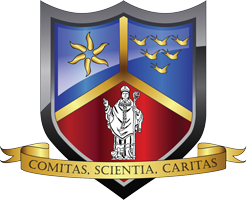Learning
Teaching and learning is at the heart of all we do at St Richard’s. It is our core business as a Catholic school and permeates all aspects of college life. Put simply, our pupils deserve a world class education; this is built on the foundation of outstanding teaching and learning in the classroom.
We are blessed to have such a hardworking, committed and talented staff in our college. Our teachers are always willing to go the extra mile for our pupils. As a result, we only appoint teachers who have the potential to be outstanding teachers.
It is our ambition that every lesson should be an outstanding lesson. Central to this vision is the ‘St Richard’s 10’. These are the key features that we believe make an outstanding lesson:
- Evidence of thorough planning with levelled outcomes which is inclusive, challenging and inspiring.
- A culture of high expectations and pupils are seen as highly motivated, committed and autonomous learners.
- A safe inclusive environment which promotes positive behaviours from all.
- A variety of tasks, resources and support allows all pupils to learn.
- Pace is used effectively to engage all pupils.
- Effective use of AfL to engage and support personalised learning.
- Successful use of data to build on prior attainment and enable each pupil to make significant progress.
- High level of diagnostic and open questioning to assess and reinforce learning.
- Pupils think for themselves and are given opportunities to demonstrate higher order thinking skills.
- Pupils and staff review learning, progress and targets together at regular intervals.
Finally, it should be acknowledged that outstanding teaching and learning is not only about our pupils leaving St Richard’s with the best qualifications possible. Our aim is for pupils to develop a love of learning; to always do their best and to become independent and lifelong learners.
Curriculum
Curriculum aims and objectives
The overall aims and objectives reflect the college’s Mission Statement. We endeavour to provide a curriculum that is broad, balanced, motivating, challenging, relevant, differentiated and personalised to the extent that it meets the needs of individual pupils in the 21st Century.
i Our Key Stage 3 Curriculum Model
The curriculum model has been developed and refined to reflect national and local demands. The inclusive nature of the model provides access to learning, teaching and assessment for all our pupils to all areas of the curriculum.
In their first three years at St Richard’s, pupils follow a common course in Religious Education, English, Mathematics, Science, French, History, Geography, Physical Education, I.C.T., Technology and the Creative and Expressive Arts subjects: Drama, Music, Art and Dance. All Key Stage 3 pupils have two dedicated ICT periods each week.
All pupils begin GCSE Science and/or Astronomy from Year 9 onwards.
Dedicated pastoral time is set aside each week for Personal, Social, Health and Economic Education including Citizenship. A second language, German, is offered to the majority of pupils from Year 8 onwards. Pupils with Special Learning Needs are assisted by members of the Learning Support Team in the classroom or are occasionally withdrawn to be involved in special programmes that includes literacy, Word Shark, Lexia and handwriting.
ii Key Stage 4
In Years 10 and 11, the pupils are offered an entitlement curriculum. This curriculum has been revised to embrace the key themes of opportunity and excellence. Enterprise and Work Related Learning opportunities form a further strand of the entitlement curriculum. All pupils follow a common core of subjects which include:
Religious Education
English Language and English Literature
Mathematics
Science
Physical Education
PSHEE including Citizenship and Work Related Learning
For some pupils, a bespoke curriculum and modified timetable will be provided where appropriate.
The remaining four learning pathways have subjects that present an element of choice within that curriculum area:
Pathway A Subjects:
Geography, History
Pathway B Subjects:
Resistant Materials, Graphics, Textiles, Food, Computing, Art (Design), Art (Fine), Media Studies
Pathway C Subjects:
Sports Studies, Statistics, Drama, Media Studies, Music, ICT, Business Studies
This series of learning pathways enables pupils to study a combination of subjects all of which include elements of the QCA nine point framework for Work Related Learning. The Key Stage 4 curriculum is shaped in such a manner to reflect flexibility, challenge, breadth, balance, coherence, relevance and differentiation, leading to a GCSE standard and the development of high order transferable skills to support individual pupil progression and future lifelong learning.
Our work experience programme is firmly established and Year 10 pupils participate in and gain from a work experience placement. This experience helps them to develop their Progress File. We also encourage pupils to access and become involved and responsible for their own learning and to challenge their ability to solve problems, develop team skills, initiative and entrepreneurship. We encourage all pupils to continue in full-time education post-16+ and we are proud of the number who continue into A/S levels (1 & 2) and Vocational courses.
CURRICULUM MODEL
2015-2016
| 7 | 8 | 9 | 10 | 11 | |
| ENGLISH | 5 | 4 | 4 | 4 | 4 |
| MATHS | 4 | 4 | 4 | 4 | 4 |
| SCIENCE | 4 | 4 | 4 | 6 | 6 |
| RE | 2 | 2 | 2 | 3 | 3 |
| PE | 2 | 2 | 2 | 1 | 1 |
| PSHEE | 1 | 1 | 1 | 1 | 1 |
| MFL | 2 | 4 | 3 | 3 | 3 |
| HUMANITIES | 3 | 3 | 4 | 3 | 3 |
| PRODUCT DESIGN | 3 | 3 | 3 | OPTION 3 | OPTION 3 |
| ART | 1 | 1 | 1 | OPTION 3 | OPTION 3 |
| MUSIC | 1 | 1 | 1 | OPTION 3 | OPTION 3 |
| DANCE | 1 period | 1 period | |||
| DRAMA | a week | a week | 1 period each fortnight | OPTION 3 | OPTION 3 |
| ICT | 2 | 1 | 1.5 | OPTION 3 | OPTION 3 |
| COMPUTING | OPTION 3 | ||||
| BUSINESS STUDIES | OPTION 3 | OPTION 3 | |||
| MEDIA STUDIES | OPTION 3 | OPTION 3 | |||
| SPORTS STUDIES | OPTION 3 | OPTION 3 | |||
| STATISTICS | OPTION 3 | OPTION 3 |
In Years 10 and 11, pupils have 2 option choices each of 3 periods = 6
Core Curriculum: English 4
Maths 4
Science 6
MFL 3
Humanities 3
RE 3
PE 1
PSHE 1 25
31


